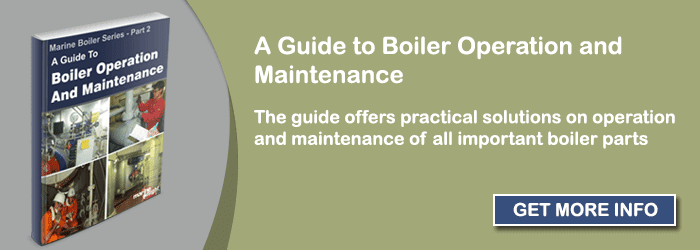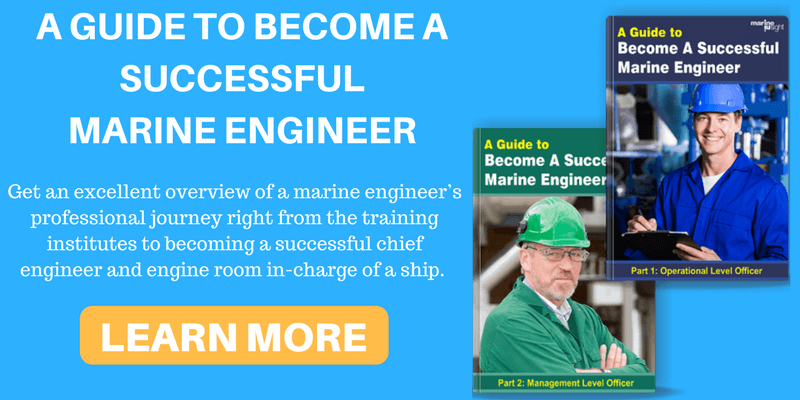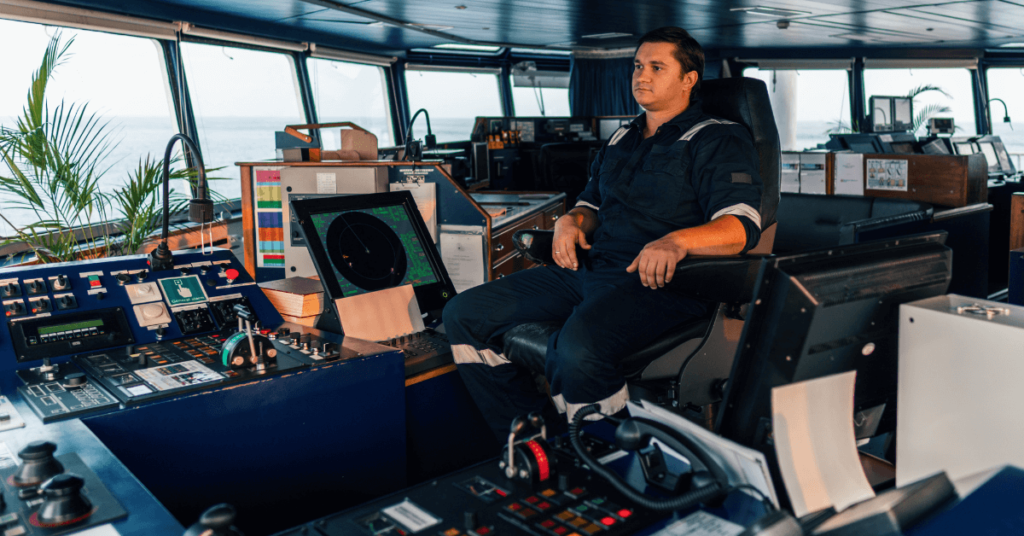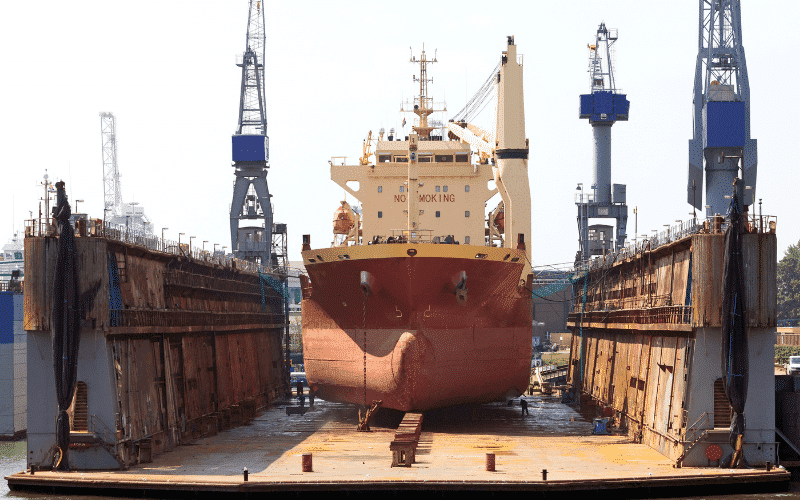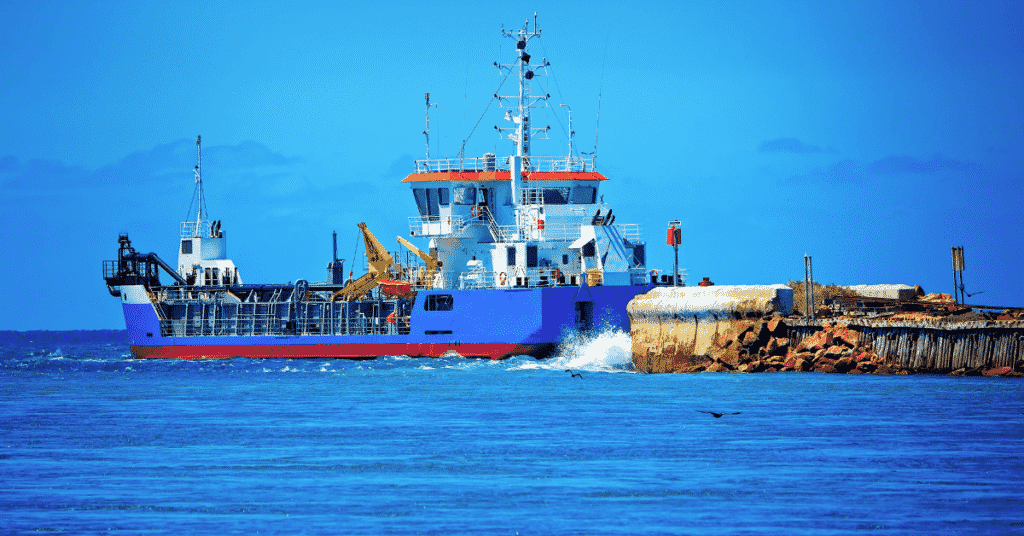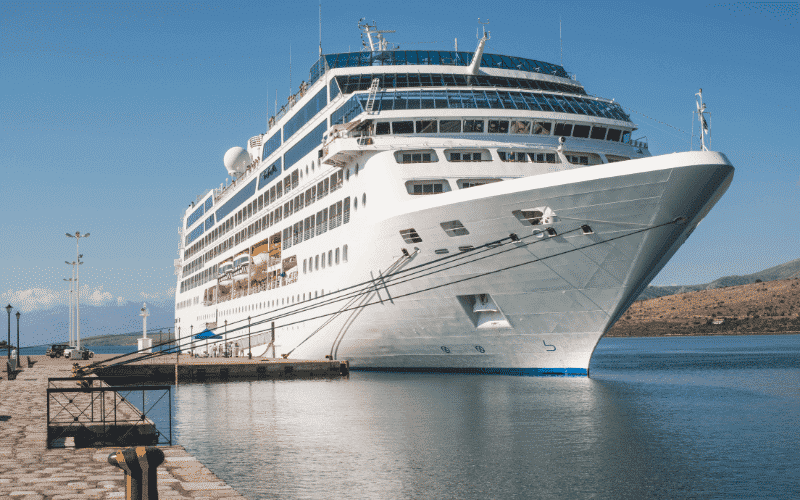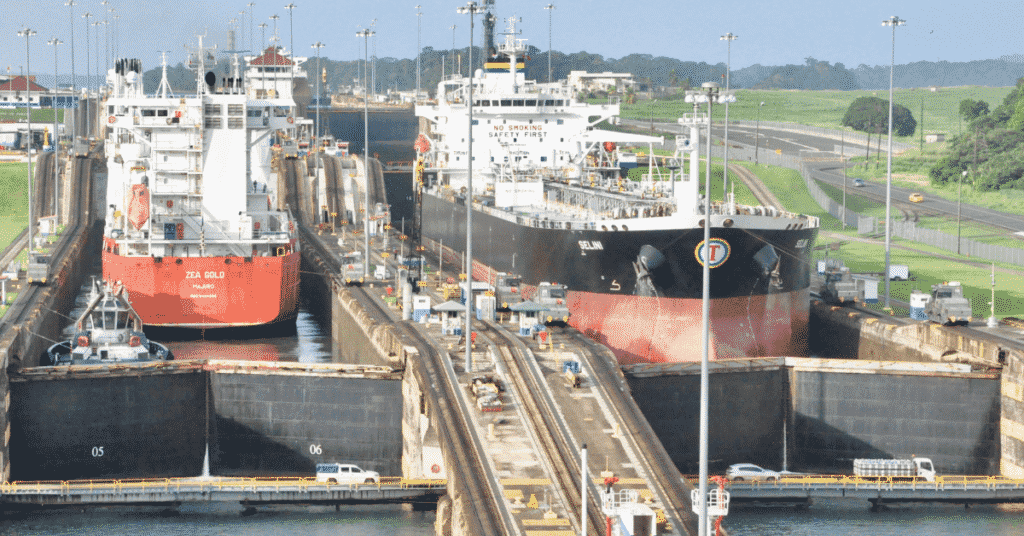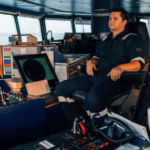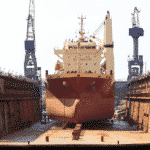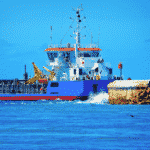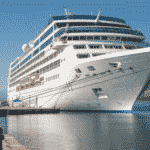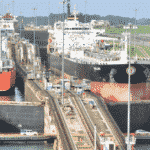Preparation for UMS Operation On Ships [Checklist]
UMS or Unattended Machinery Spaces is a marine automation system for ship’s engine room. Unlike conventional watch system on normal cargo ships, in UMS class vessels, there are usually no engineer officers on watch in the engine room (from 1700 hrs. to 0700 hrs). If there is a malfunction in any machinery, an alarm will be sounded in the engine room as well as in the ‘on duty’ engineer’s cabin. It’s then the engineer’s duty to go down in the engine room and investigate the alarm.
Before the ship’s duty engineer switches the engine room to UMS mode at the end of day’s work, he/she has to take thorough engine room rounds to check the condition of all running machinery systems and try to anticipate any probable alarms that could occur at night. Normally, shipping companies provide a UMS checklist in their SMS and the engineer has to adhere to the same.
A UMS checklist generally has the following points mentioned in it:
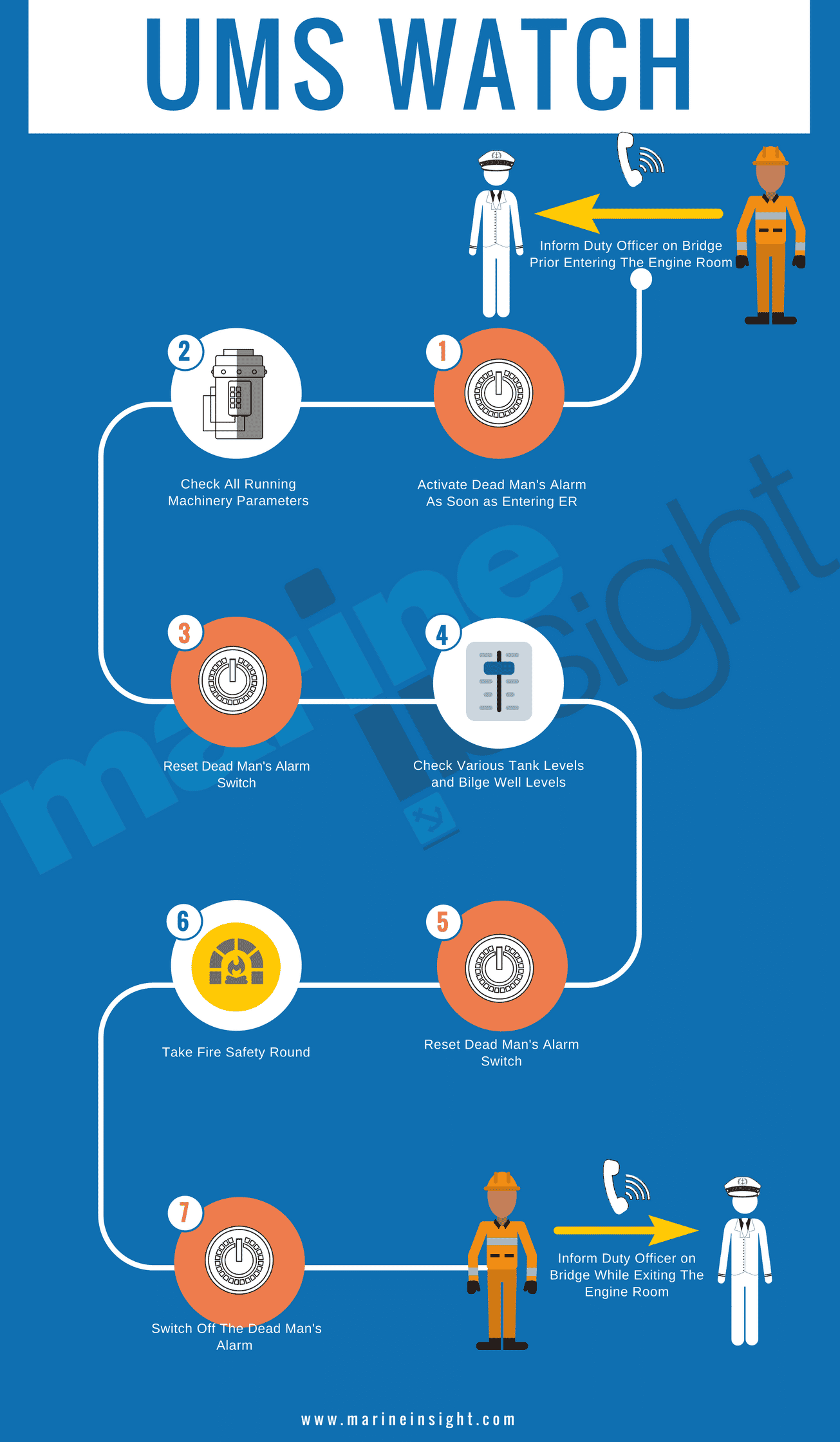
• Duty officer should be aware of duty engineer’s location.
Make sure you inform the duty officer about your location when you leave the engine room whether you are heading for your meal or to your cabin or to the gym. The duty officer should always know about your whereabouts.
The time engine room has to be unattended depends on Chief Engineer’s standing orders and company’s instructions.
• Dead Man Alarm for Engine Room during UMS
The dead man alarm system provides a safeguard for the duty engineer who enters the machinery space during periods of UMS operation in response to an alarm or for any other reason. Should that engineer get into difficulty whilst alone in the machinery space, the dead man alarm system provides an indication to others that the engineer is in the machinery space but unable to respond by activating the response switch.
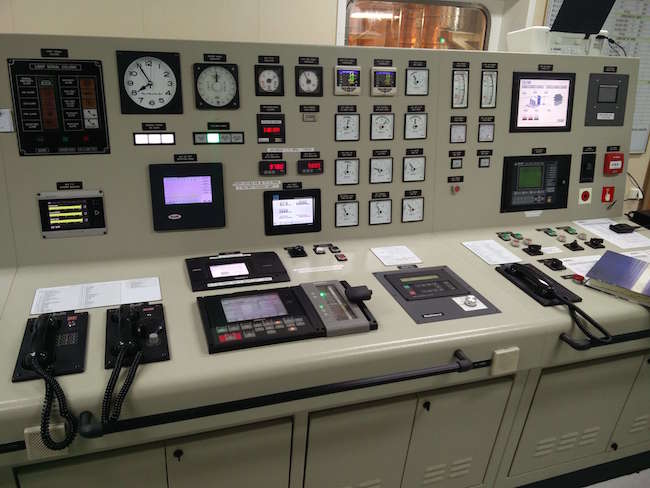
The dead man alarm system can be started at the ECR control console or at the entrance to the engine room. The engineer must reset the timer by acknowledging their presence in the engine room at intervals not exceeding 24 minutes. Timer reset buttons are located on each of the engine room signal light columns. If the countdown timer is not reset within the 15-minute period, an alarm is activated on the bridge. The timer may be reset by turning the dead or patrolman switch to the OFF position and then to the PAT position. Before the duty engineer leaves the engine room after correcting a fault or undertaking the necessary work, the patrolman switch must be turned to the OFF position.
• All FO/LO and freshwater tanks/sumps are adequately filled
This includes all engine room tanks such as FW expansion tank, ME Cylinder oil day tank, Generators sump tank, FW tanks, Cascade tank, FO tanks, MGO tanks, ME sump tank, Stern Tube LO tanks, etc.
• Bilges are dry and high-level alarms are operational
This is one alarm every engineer hates. Make sure all engine room bilge wells are empty or much below the high alarm level. Make sure high-level alarms are operational which will indicate if there is any leakage during unattended engine room.
Related Read: How Good Bilge Management Practices Help Improve OWS Performance?
• Make sure sludge and bilge tanks are minimum safe level
Sludge tanks keep on increasing continuously when purifiers are running. Similarly, oily bilge tanks keep on increasing when ME is running. Make sure they are below minimum value to avoid overflowing and alarm.
• Smoke and Fire alarms are operational and no zone/detector is isolated
Many times, due to hot work in the engine room or during testing of detectors, fire detectors of a particular zone are isolated. It has happened that after the work is finished, personnel have forgotten to activate the detectors again. Hence it is necessary to check every time when you are about to leave engine room.
• All alarms and safety cut-outs are operational
Make sure no alarms are in repose condition or in manual mode. Also, ensure all alarm set values are correct and not manipulated to avoid alarms; this practice is not safe at all.
• Compressed air receivers are fully charged and one main air receiver is isolated
The air bottles should be fully charged up to 30 bar. The pressure switches of the main air compressors ensure air bottles have sufficient pressure all the times.
• FO separator feed inlets are suitably adjusted. Separating temperature is at 98 Degree Celsius and the automatic temperature controller is operational
It is necessary that we get maximum purification for FO which is achieved at a minimum feed rate and separating temperature of 98 Degree Celsius. It might not be possible to keep minimum feed rate all the time depending on the FO consumption and requirement.
Related Read: High-Speed Centrifuge on Ship: Construction and Working
• FO/DO overflow tanks are empty or at unplumbable ROB
All FO leakages go into the FO overflow tank. Also, auto backwash filters’ backwashing fuel goes to FO overflow tank. It is necessary to make sure it is empty so that we can find out if there is any leakage of FO.
• The emergency diesel generator is on standby
Emergency diesel generator should always be on standby. In case of any blackout, it should start automatically and supply emergency switchboard within 45 seconds.

• The CO2 and water mist system are operational
In case of fire in the engine room, water mist system should operate automatically. Hyper mist or water mist is present for ME, Generators, Auxiliary Boiler, Purifiers, and Incinerator.
Related Read: 8 Mistakes You Should Never Make While Handling CO2 Fire Fighting System
• All soundings self-closing cocks are in closed position and sounding caps are closed.
After taking sounding, it has to be seen that self-closing cocks are free in their movement and sounding caps are properly shut.
• Stopped diesel generators are on standby
All standby generators should be on standby and auto-start and synchronized in case of on load generator failure.
• All standby pumps and machinery system is on standby and auto start.
In case of any failure, standby pump or machinery should auto-start. This is known as redundancy.
• Auxiliary Boiler is on standby and auto start, auto controllers are all functioning properly.
When the ME is running and steam pressure is supplied by economiser or exhaust gas boiler, the auxiliary boiler should be in auto start mode and standby. If due to any malfunction the economiser fails to provide sufficient steam pressure, the auxiliary boiler should fire and make sure steam pressure doesn’t fall.
• All ventilation fans are running
Engine room should always be under positive pressure to assist ME and Generators turbocharging. Also, necessary to maintain ship’s engine room temperature.
Related Read: 10 Harmful Effects Of Impure Air On Ship’s Machinery
• All combustible materials are stored in safe place
To avoid any hazard when engine room is unattended, make sure all combustible materials are stored in a safe place and secured properly.
• The pressure difference between DP filters is minimum or not beyond a limit
DP filters are auto backwash filters which have a self-cleaning mechanism. If the differential pressure is more, it means the filter candles are choked and will result in a decrease of pressure at the outlet, leading to various other problems.
• Engine room and steering gear room watertight doors are shut. Funnel flaps are shut
The ship should be seaworthy and there should be no scope for any water ingress inside the engine room.
• All operating parameters are within normal range
All working parameters such as cooling FW temperatures, FO, LO temperature and pressure, Exhaust temperature, etc. should be in normal range.
• ECR air conditioning is operating correctly
It is important that ECR temperature is ambient for all the electronics present inside the ECR.
Related Read: How to Install Electronic Circuits on Ship?
• Loose items are secured
Anytime due to rolling and pitching in rough weathers, loose items can create damages in the engine room. Make sure all items are properly secured.
• Electric kettle plugs are removed in ECR
Electric appliances when unattended are a fire hazard. Especially kettles and microwave which may not be of good quality and should be unplugged before putting engine room to UMS.
• Workshop welding plug is removed
When welding rectifier machine is unattended, the plug should be removed to avoid any fire hazard.
• Acetylene and Oxygen cylinder line valves are closed
To avoid any hazard due to gas leakage, it is very important to secure acetylene and oxygen connections.
Related Read: 20 Practical Tips for Safe Gas Welding and Cutting Operations On Ships
• Main Engine is on bridge control
Ensure main engine control is on the bridge. Also, make sure that if they need to change RPM of ME then they need to inform you first before changing anything.
• Data logger and alarm printer are working satisfactorily
In the engine room, all logs and alarms are recorded by two separate printers for records. Make sure they are functioning properly.
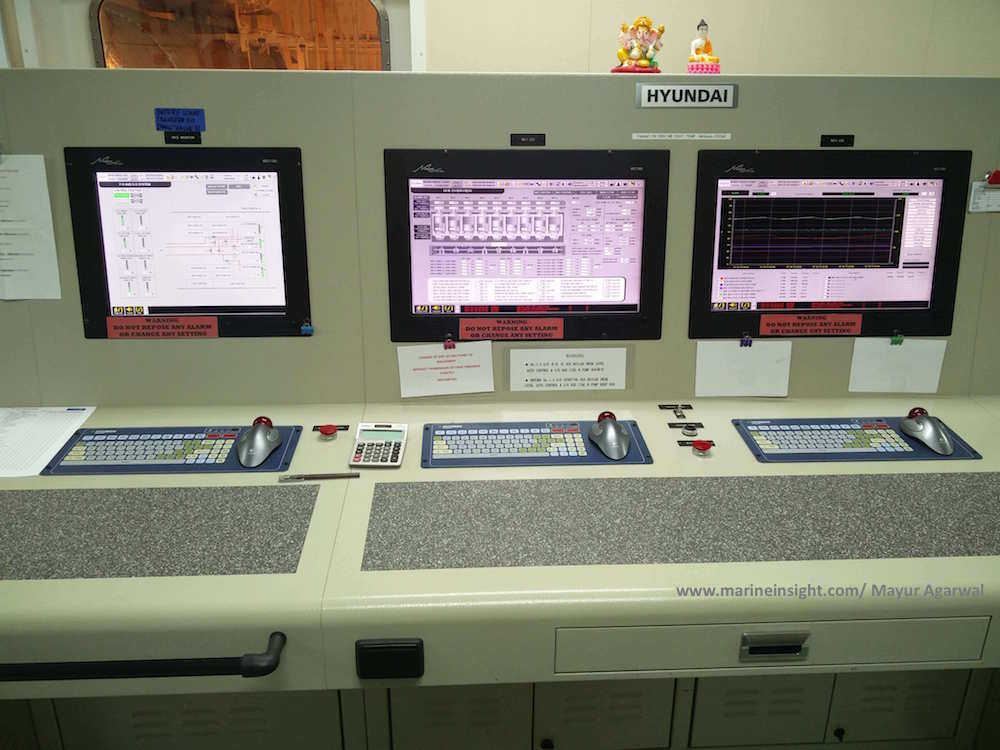
• Chief Engineer and 2nd engineer should be aware that the Engine Room is going into UMS
Chief Engineer and 2nd engineer are the management team of Engine Room. They should be always made aware of everything in the engine room. Make sure all standing orders of Chief engineer are followed before putting engine room in UMS.
• Make sure of the vessel’s position and whether the engine room can be put in UMS
There are times when Engine room cannot be put in UMS, like while crossing canals, when there is a lot of traffic, one hour after RFA etc. This depends on company requirements and the decision of Captain and Chief Engineer.
• Control is transferred to bridge and duty officer is informed about time of commencement of UMS.
After finishing rounds, you can now put engine room in UMS by activating your cabin alarm and informing duty officer on the bridge. Commencement of UMS time has to be recorded in ship’s engine room log book. Any special instructions related to an ongoing task should be given to the duty officer on the bridge.
There are many other things that ship’s duty engineers need to check depending on the condition of the engine room, tasks going on in the engine room, type of ship and standing orders of chief engineer. I have mentioned all general points that are required to be checked every time. It is a huge big responsibility to leave an engine room in UMS and hence it is advised to take proper UMS rounds to make sure you have a sound sleep at night on ships. As a practice, engineers after taking rounds go through everything again by taking a virtual round mentally to make sure that they have not missed anything. A proper UMS round gives you confidence that there is nothing to worry about in the engine room and the duty engineer can relax in his cabin, but also alert all the time for alarms.
Disclaimer: The authors’ views expressed in this article do not necessarily reflect the views of Marine Insight. Data and charts, if used, in the article have been sourced from available information and have not been authenticated by any statutory authority. The author and Marine Insight do not claim it to be accurate nor accept any responsibility for the same. The views constitute only the opinions and do not constitute any guidelines or recommendation on any course of action to be followed by the reader.
The article or images cannot be reproduced, copied, shared or used in any form without the permission of the author and Marine Insight.
Do you have info to share with us ? Suggest a correction
Latest Shipboard Guidelines Articles You Would Like:
Subscribe To Our Newsletters
By subscribing, you agree to our Privacy Policy and may receive occasional deal communications; you can unsubscribe anytime.



